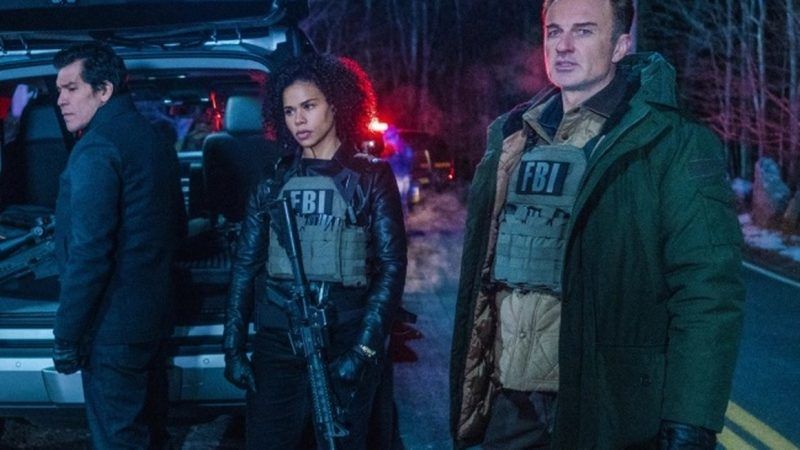Dick Wolf's Parade of Cookie-Cutter Police Shows Marches On with FBI: Most Wanted
Will this well ever go dry?

FBI: Most Wanted. CBS. Tuesday, January 7, 10 p.m.
In a zillion-channel television universe where nothing ever really disappears, the desiccated remains of 78 seasons of Dick Wolf's Law & Order shows, including various spinoffs and foreign versions (What? You don't binge-watch Закон и Порядок. Преступный умысел?), shamble through every dark alley and seedy tenement, emitting ghoulish mating shrieks for their paramours, the 28 seasons of Wolf's Chicago urban-dysfunction shows. The longest-running live-action character in TV history is L&O: Special Victims Unit's rape-busting detective Olivia Benson, who in real life would have surely taken her pension last year after 20 seasons on the air. (She didn't.)
So perhaps it was inevitable that Wolf's newest show, FBI, would clone itself and turn into yet another franchise. That doesn't mean we have to like it. And please, I'm begging you, don't. It's not fair. There are scores, probably hundreds, of producers out there capable of turning out cookie-cutter, station-house dramas with dialogue that could be contained on bubble-gum comics and plots with the fervor and complexity of a kindergarten Candy Land tournament. Why should Wolf get to do them all? And anyway, this is not an onerous request. Not liking CBS' FBI: Most Wanted is as easy as falling off a log, and much less painful.
Wolf fans, of whom there are, obviously, millions, react fiercely when somebody says his shows are dull and repetitive. And there are occasional exceptions. I once tuned into the middle of an SVU episode to discover a reporter shouting at a villainess, "Charmaine, Charmaine! How much did you pay for the rectal probe?" (Don't ask. I did and discovered the answer had something to do with the old "electro-probe anal erectile procedure" plot twist.)
But, generally speaking, Wolf's dramas—especially the crime procedurals, a genre he invented—are unmistakably his work. They feature terse, rage-prone cops and unmitigatedly evil villains, inclined to spend their time on car chases and shootouts rather than the contemplation of moral ambiguity. The plots are almost inevitably simple enough to be resolved in a 42-minute television hour, because multi-episode story arcs don't play well in syndication, which is where Wolf's shows make their real money. (For the same reason, temporal references are almost non-existent; watching an L&O episode, you can't tell if the president is Trump, Obama, or, except for the absence of waistcoats, McKinley.)
That's pretty much what FBI: Most Wanted is like, except more so. Agent Jess LaCroix (Julian McMahon, so good as the sexually slimy plastic surgeon of Nip/Tuck, so woodenly abysmal here), the head of the FBI Fugitive Task Force, is perhaps the dumbest cluck Wolf has ever created. His management technique consists of giving his team pithy descriptions of the character of whatever criminal is under pursuit—"skill and depravity" or "ruthless and daring" or "arrogant narcissist"—followed by the keenest investigative tips since Dick Tracy's Crimestoppers Textbook made Sunday newspapers worth reading. Told a mass-murdering street-gang boss is on the loose, LaCroix alertly inquires: "Do we have his home address?" And his knowledge of federal procedural rules is literally unchallengeable. I kept expecting him to charge into a crime scene screaming, "Jurisdicton? We don't need no stinkin' jurisdiction!"
My own contribution to the Crimestoppers Textbook is that whenever you see that LaCroix is about to speak to his agents, reach quickly for the volume control; he never speaks to them in anything but a bark. Yet as Wolfe's characters go, LaCroix is a marvel of multidimensionality. He also barks at suspects, prosecutors, witnesses and suspicious cloud formations. Look for LaCroix to be a principal in further Wolf clones, including FBI: Ruby Ridge, and FBI: Comey's Safe.


Show Comments (13)